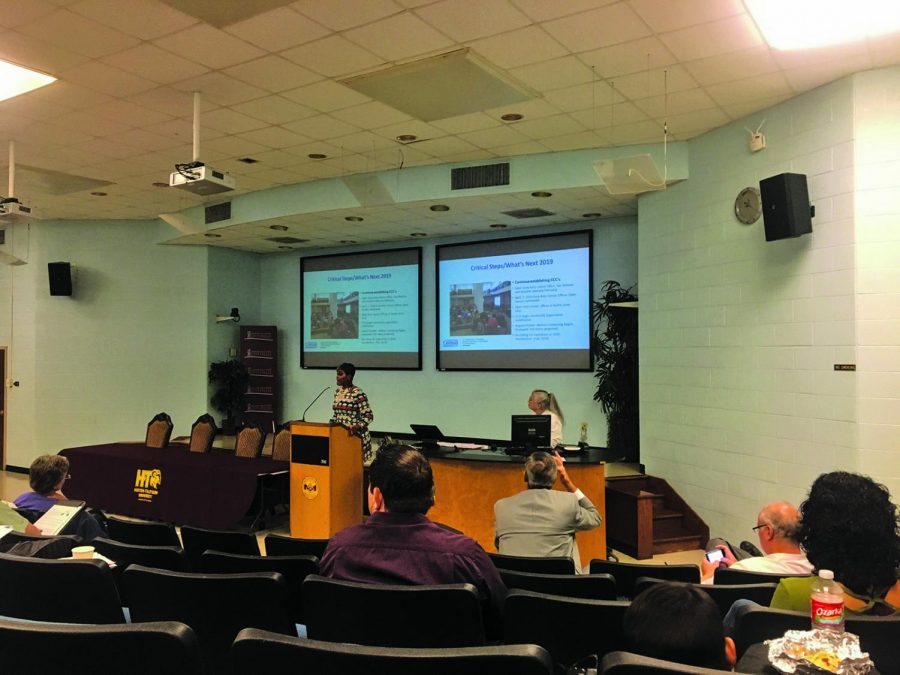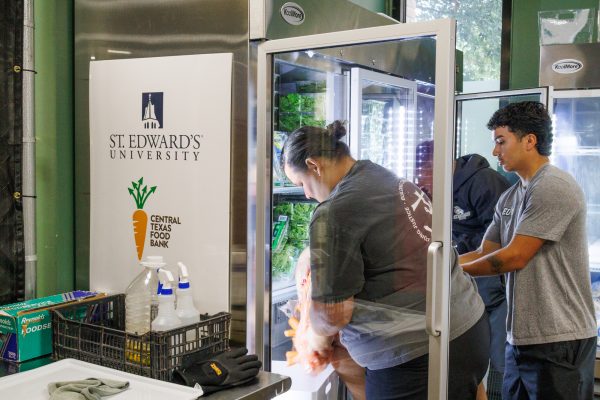College students, other groups likely to be underrepresented in 2020 census
Photo by Andrea Guzman / Hilltop Views
“According to the Austin Chamber of Commerce, more than 178,000 students were enrolled in community college or four year colleges or universities in the greater Austin area Fall 2015.”
College students are among the population groups in Austin that face an increased risk of being undercounted on the 2020 Census.
Rebecca Briscoe, partnership specialist with the U.S. Census Bureau, discussed the challenges with having students and various other groups complete the once-a-decade population count during a workshop at Huston-Tillotson University Sept. 15.
The Center for Public Policy Priorities, one of the organizations hosting the workshop, also identified these groups as being at risk of an undercount:
- individuals who are homeless
- communities of color
- undocumented immigrants
- the elderly
- those who do not speak English fluently
- LGBTQ people
- those who are untrusting of the government
- children under the age of five
While parents might be inclined to include their child who is away at college on their census form, Briscoe said students should complete their own. The address listed on census forms for everyone should be according to “where they lay their head on April 1, 2020,” Briscoe said.
According to the Austin Chamber of Commerce, more than 178,000 students were enrolled in community college or four year colleges or universities in the greater Austin area Fall 2015.
An undercount is likely with the coming census due to the addition of an untested question asking people if they are a citizen, experts say. However, routine efforts to prevent an undercount will be applied during the upcoming census, including “complete count committees” or CCC’s.
These groups do outreach for communities at risk of an undercount. For example, groups will go directly to people who are homeless so they can complete the census electronically using iPads that keep a GPS record of their location.
State-level funding could also be allocated towards combating a 2020 census undercount in Texas.
“A one percent drop in 2020 could result in significant loss of federal funds, with $100 million potentially lost in Texas. The undercount could include all sorts of areas, it’s not just large, urban, metropolitan areas, but also includes rural counties and communities along the Texas-Mexico border,” Luis Figueroa, legislative and policy director for CPPP said.
Referencing that former Texas governors Bill Clements and George W. Bush evoked executive order to have a statewide CCC, Figueroa called for the state to do the same in 2020. “We don’t want Texas to fall behind, especially with the stakes being so high.”
Data from the census determines the amount of federal funds states receive and their representation in Congress, with Texas projected to gain three seats. The data is used to allocate funds for schools, highways, housing, law enforcement and health care resources.
Separate from the local CCC’s, Austin and Travis County will partner on an outreach campaign to have people complete the census.







